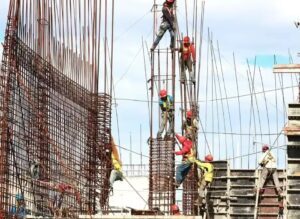A Louisiana hardship license gives you the privilege to drive after your license was suspended for a DWI. It grants you a restricted license to drive for essential purposes, such as work, school, medical reasons, and to maintain the necessities of life. It often requires you to install an ignition interlock device (IID), a piece of equipment that helps prevent drunk driving.
Understanding when you can get a hardship license is critical information. We provide the ultimate legal guide to a Louisiana hardship license.
Eligibility Criteria for a Hardship License in Louisiana
You must meet several criteria to be eligible for a Louisiana hardship license. First, you must establish that you need to drive for an approved reason. The hardship license is designed to help individuals with a suspended license use their car in limited circumstances, such as:
- Traveling to and from work
- Going to the grocery store and other critical shopping
- Getting an education
- Attending medical appointments and covering other health care needs
- Traveling to and from court proceedings
Other eligibility criteria may apply in your unique case.
Age and Offense Requirements
Your age or the reason your license was suspended may impact your eligibility for a hardship license. Under Louisiana’s graduated driver’s license laws, drivers who are 15 or 16 do not have full driving rights. Those 17 and older may get an unrestricted license, but this may be directly impacted by a criminal or driving offense that suspends that license.
The offense that caused your suspension can impact your eligibility for a hardship license. The most common reason a license is suspended is for driving while intoxicated (DWI). Other common offenses that might suspend your license include:
- DWI chemical test refusal
- Driving under suspension
- Vehicular negligent injury
- First unlawful use
- School bus violations
- Nonpayment of child support
- Nonpayment of income taxes
If this is your first offense, you are likely eligible for a hardship license if you meet all of the other requirements. However, specific exceptions may apply depending on your specific circumstances. The offense itself may disqualify you from eligibility. Your attorney can help you determine whether that is the case.
Necessary Documentation
You need certain documentation to be eligible for a restricted license. Which documents you need depends on the reason you are applying. These documents include:
- Medical documentation that proves why you need to attend appointments
- Proof of liability insurance
- A court order
- Recommendations related to your period of suspension
- Ignition interlock device installation agreement and lease
Application Process for a Hardship License
In most situations, you may apply for a Louisiana hardship license 30 days after your driver’s license suspension. You must provide all of the documentation along with your application and why you need one. How to complete the application form is often difficult for people, but there is assistance ready to help you.
Completing the Application Form
When completing the application form, honestly answer every section. Never attempt to hide information, even if you worry it may impact your approval. The authorities already know the information, and honest answers will go a long way. Dishonest answers will result in the denial of your application and may have other legal implications.
Carefully consider each section and fully read each one. You will need to explain why you are requesting the application, as only certain reasons permit approval of your restricted license. Explain why you need your driver’s license and whether you have court permission for a hardship license. Avoid common mistakes like not completing every section or not providing the proof the application form requires.
State-Specific Procedures
It is critical to follow all state-specific procedures in the Louisiana hardship license application. You will apply for your hardship license through the Louisiana Department of Motor Vehicles or the local district court. You should provide the court order that permits you to apply for this special permission.
Your restricted driver’s license requirements may impose certain conditions on you. For example, you may be required to install an ignition interlock device. If so, you must note that in your application and comply with all imposed requirements under state law.
Types of Hardship Licenses in Louisiana
There are several types of hardship licenses in Louisiana. Three of the most common are:
Work-Related Hardship Licenses
A work-related hardship license allows you to travel to and from your place of employment. Courts recognize that continued employment is important to you and your family. Continued employment is often critical to preventing future crime, so courts favor hardship licenses in these circumstances.
Work-related requests are generally appropriate when:
- You are gainfully employed
- You must drive to work to stay employed
- Your work does not require a commercial driver’s license
You must provide details about your employment in your application, including your work address and hours.
Medical Hardship Licenses
A medical hardship license allows you to keep medical appointments and seek the care you need to stay healthy or recover after an injury. Your application should include the nature of your medical concerns, doctor contact information, and other details it may request. This can be appropriate in situations such as:
- You were injured in a Louisiana car accident and need ongoing care
- You have a diagnosed medical condition
- You have specific medical appointments scheduled
Educational Hardship Licenses
Students may apply for a hardship license to travel to and from school. Minors traveling to high school may have special age restrictions that apply to their license. Adults may travel to technical school, college, or a university if granted permission.
In the application, you should provide details such as:
- The school’s location
- Your major or program
- Your class schedule
- Your class start and end dates
Restrictions and Requirements for Hardship Licenses
Your hardship license, if granted, will outline your specific restrictions and requirements.
Driving Limitations
A hardship license restricts you to traveling only for the approved purpose. If you violate the driving limitations, you could face significant penalties, including:
- Further suspension of your driver’s license
- Full revocation of the privilege to drive
- High fines
- Imprisonment
Make sure you follow all restrictions and limitations for your hardship license to avoid severe penalties.
Insurance and Financial Obligations
You will be required to carry SR-22 high-risk insurance in most cases. This costly coverage will apply during your restricted license period and longer. You must also pay all court costs and fees associated with IID use.
Costs and Fees
The costs and fees you incur will range from a few hundred dollars to a few thousand. Your attorney can help determine what you might face.
Application and Processing Fees
Application and processing fees must be paid. The exact cost will depend on where you file and the nature of your application.
Legal Assistance Costs
Legal assistance is often vital to successfully winning a hardship license. Your attorney can speak with you about the cost of representation.
Legal Assistance and Resources
There are ways to get assistance and helpful resources.
Finding Legal Help
You can pursue legal aid, which may provide pro bono resources and assistance. These resources are limited, however.
You may also contact a Louisiana hardship license attorney for help. Legal assistance is often critical to approving your hardship license.
Resources for Applicants
Other resources that may help include:
Consequences of Violating Hardship License Terms
You could face additional consequences if you violate any of the terms of your hardship license.
Penalties and Fines
You could face penalties such as further restrictions on your license, additional criminal charges, or even incarceration. A court may also impose hefty fines for any violations.
Impact on Future License Applications
Any future hardship application is less likely to be approved if you violate the terms of your existing order. However, an attorney can often help with future applications where going it along may be difficult.
Frequently Asked Questions About Hardship Licenses
What is a hardship license in Louisiana?
A hardship license is a restricted driver’s license that allows you to drive for specific reasons. These typically include traveling for school, work, or medical appointments.
What qualifies for a hardship license in Louisiana?
Drivers with a suspended Louisiana driver’s license may apply for a hardship license. It places restrictions on your right to drive if you qualify.
What are the requirements for a hardship in Louisiana?
A hardship license generally requires that you need to travel for an important reason while your driver’s license is suspended. This can include medical reasons, educational purposes, work-related requests, and other necessities of life.
Navigating the Hardship License Process in Louisiana
There is a lot to know about hardship licenses, and the whole process may seem overwhelming. Use this legal guide to help you get started. An experienced Louisiana hardship license attorney can help you successfully apply for a restricted license and follow all the rules.





